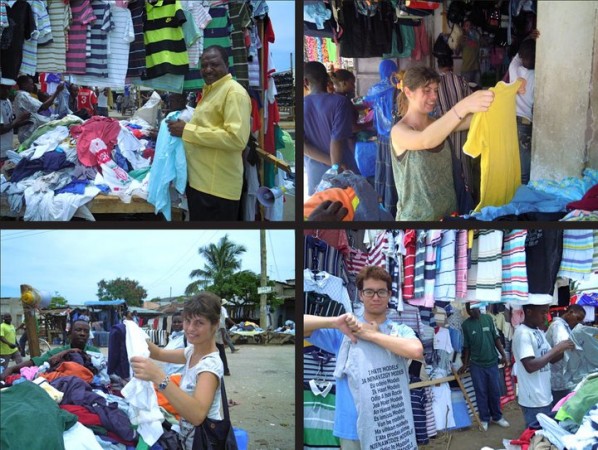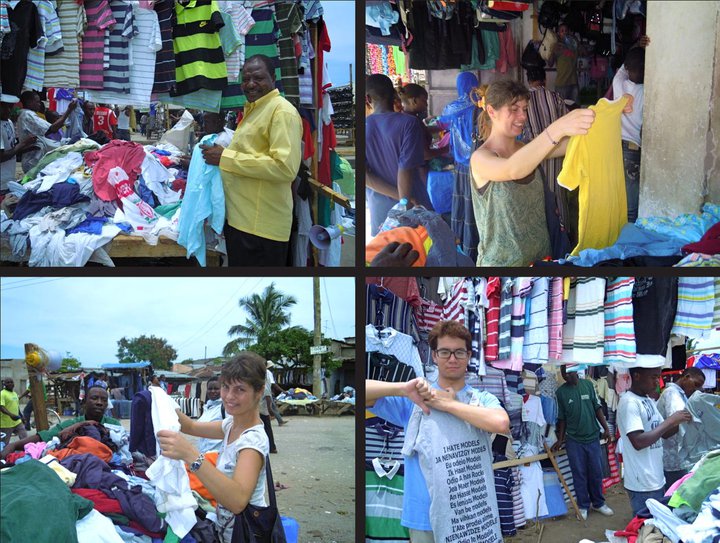
A Boston-based non-profit aims to harness the power of hipsterdom to benefit people in third world countries. In January, Smallbean launched Project Repat: an initiative to collect shirts from used clothing suppliers in third-world countries, then sell the shirts to earn proceeds for non-profits.
According to Project Repat, only five percent of shirts donated to thrift stores like Goodwill are re-sold within the United States. The other 95 percent are sold in bulk to middle men who distribute the shirts to used clothing stores worldwide, where they are typically sold for one to two dollars each.
Volunteers traveling through countries including Haiti and Tanzania purchase the originally American-worn shirts for Project Repat. Project Repat then washes and brands the shirts, and sells them online for $25 apiece. All of the proceeds go to Smallbean and Newton Tanzania Collaborative, both of which are non-profit organizations focused on assisting developing countries.
“Basically, we’re ‘repatriating’ the shirts that left America too soon, picking them up in Africa and bringing them back home to support local markets in Africa and to generate revenue for various nonprofit organizations,” said Boston University student Hanah Johnson (CAS ’12), a member of the project’s account executive team.
Project Repat founder Sean Hewens got the idea for the project while he and his team of Smallbean volunteers in Nairobi, Kenya got stuck in a traffic jam.
“Turned out the mess was caused by an overturned fruit and vegetable rickshaw pushed by this guy wearing a t-shrit that said, ‘I Danced My Ass Off at Josh’s Bar Mitzvah’,” said Hewens. “I’d seen a ton of amazing hipster shirts during my time living and working in Africa, but this one was just over-the-top.”
About a week later, Hewens met up with the project’s co-founder, BU alum Ross Lohr (CAS ’07), to discuss how to use the array of unique shirts abroad to benefit a greater good.
Since its launch on Jan. 1, the project has sold about 50 shirts and raised $1,000. Hewens says Project Repat offers college students a chance to make a positive impact in international development.
“Project Repat provides a totally unique t-shirt to tell your friends about, and support an African girl’s tuition fees in Tanzania or the building of a computer lab in Kenya,” said Hewens.
Project Repat’s upcoming endeavor is a Kickstarter campaign to earn $5000. To assist in the campaign, Johnson and fellow account executive Shereen Samadzadeh (CAS ’11) organized the Project Repat Adventure Day on March 26, which included photo shoots all over Boston to generate buzz.
“Our biggest challenges is that we’re a start up company, so we’re trying to get our feet on the ground and get the word out,” said Samadzadeh. “Right now, we don’t have a constant flow of shirts… the money we earn will go towards bringing new shirts to Boston and keeping the project going.”
Ultimately, Hewens says he would like to see the shirts sold in larger stores like Urban Outfitters.
“As Repat grows, our chances to really make an impact for the organizations we support also grows,” said Hewens. “The world is absolutely interconnected in every way, and Project Repat is a really cool way of demonstrating how purchasing decisions we make here in Boston can impact far away places in Tanzania and Kenya.”
Check out Project Repat’s Kickstarter campaign to raise $5,000 by May 6th.


I helped build a school in Africa and all I got was this crappy t-shirt.